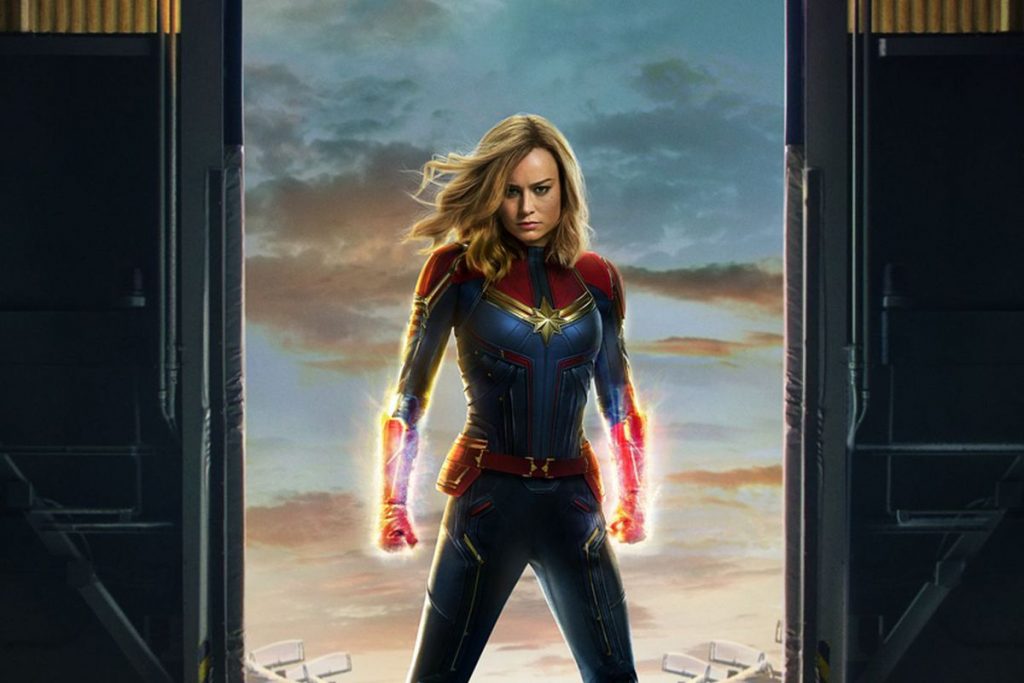
The latest release in the Marvel Cinematic Universe (MCU), “Captain Marvel” is simultaneously 90s-nostalgic and futuristic, blending some truly gorgeous special effects with the impactful emotional arc of Carol Danvers (Brie Larson) discovering the truth about herself and the universe. Featuring appearances from a young Nick Fury (Samuel L. Jackson) and Phil Coulson (Clark Gregg), “Captain Marvel” offers just enough humor to make the more hard-hitting moments that much more meaningful.
While the deluge of superhero movies our culture has experienced for the past decade or so can make it difficult to care about the newest addition to whatever the current lineup is, Brie Larson does an excellent job portraying a Carol Danvers that the audience both likes and can root for, effectively feeling fresh and distinctive as a character.
Danvers must overcome six years of being molded into someone she is not in order to protect a group of interplanetary refugees and her own friends and family. The emotional climax of the film subverts viewers’ expectations as Danvers’ main antagonist challenges her to prove herself to him by playing by his rules, to which Danvers responds coolly that she has nothing to prove to him. Instead of the big, intense battle audiences have come to expect from superhero films, Danvers takes her opponent out easily and at a distance: the fight is over before it has ever begun.
Perhaps the most difficult part to swallow of “Captain Marvel,” however, is the blatant military advertising. Superhero movies, and Marvel in particular, are no strangers to promoting the military – Steve Rogers being a notable example – but the uncritical presentation of Danvers’ participation in and apparent idolization of the military combined with advertisements pre-movie designed to make joining look like a way for women to be empowered is uncomfortable to say the least.
As the film’s present-day is set in 1995, Danvers would have been last active in service in 1989, suggesting that she would have been serving under Reagan and Bush Sr. There is no mention of contemporary military activity, only that Danvers and her friend Maria Rambeau (Lashana Lynch) are not given many opportunities to participate in many actual assignments despite their strong desire to do so.
The decision to keep them out of activities unrelated to the plot absolves the characters of involvement in the military actions of the ‘80s, but presenting the military only through Danvers’ enthusiastic eyes as a vessel of opportunity ignores the imperialism that the United States military perpetuates. Complicating the presentation of the military in the same way that the group of refugees were revealed would have lessened the feeling of blind praise.
Despite this, “Captain Marvel” is still an enjoyable watch for the storyline and the development of Danvers’ character. The emotional arc of the film is rewarding, and being aware of the military advertising space makes it easier to set aside in order to focus on the film itself. If you’re a fan of superheroes, powerful women, or just want to stay in the loop of the MCU before “Avengers: Endgame,” “Captain Marvel” is a good choice.
